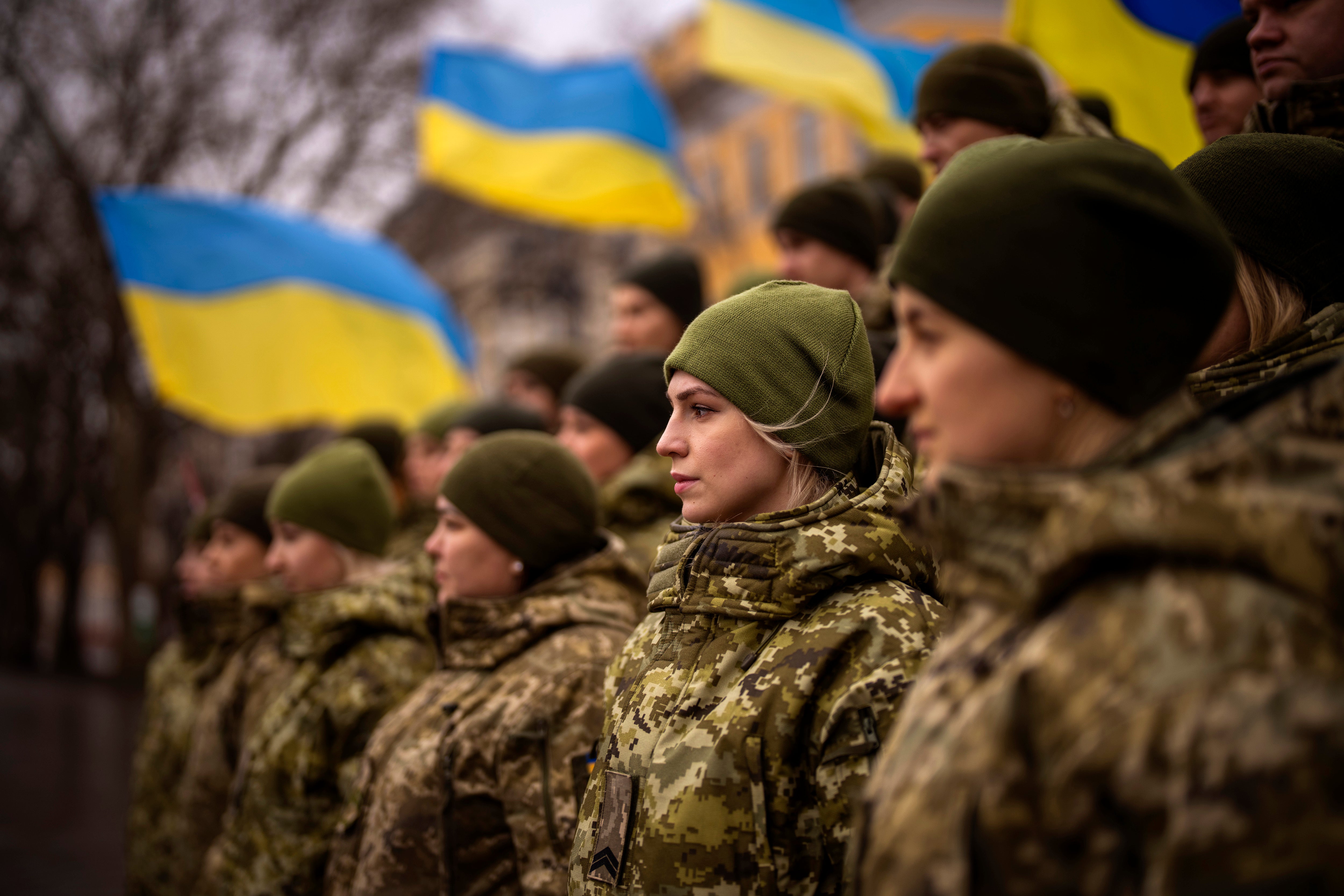Ukraine: On unity day, flags convey endurance, defiance
Flags celebrated survival, endurance and above all, defiance on a day Ukraine's president had called for displays of unity

Your support helps us to tell the story
From reproductive rights to climate change to Big Tech, The Independent is on the ground when the story is developing. Whether it's investigating the financials of Elon Musk's pro-Trump PAC or producing our latest documentary, 'The A Word', which shines a light on the American women fighting for reproductive rights, we know how important it is to parse out the facts from the messaging.
At such a critical moment in US history, we need reporters on the ground. Your donation allows us to keep sending journalists to speak to both sides of the story.
The Independent is trusted by Americans across the entire political spectrum. And unlike many other quality news outlets, we choose not to lock Americans out of our reporting and analysis with paywalls. We believe quality journalism should be available to everyone, paid for by those who can afford it.
Your support makes all the difference.The Ukrainian flags celebrated survival, endurance and above all, defiance.
A pair of human chains grasped a blue and yellow banner along the edge of a stadium field in Kyiv, one on either side. Others clutched tiny flags individually on Wednesday, which Ukraine's president declared a day of national unity.
One made it onto an Olympic podium in China.
President Volodymyr Zelenskyy called for displays of Ukrainian unity on a day that British and American intelligence officials had predicted might bring a Russian invasion as more than 130,000 Russian troops were massed on Ukraine's borders.
Russia has denied any plans to attack Ukraine. Zelenskyy himself tempered his call for unity with skepticism that Feb. 16 marked anything other than yet another day Ukraine faced threats from its aggressive neighbor.
“Last night, I and many people were waiting for the war, but the war didn’t start, said Mikhail Risenberg, a student who took part in the ceremony in the eastern city of Kharkiv to show his readiness to resist possible Russian attack.
In Kharkiv, a city located 40 kilometers (25 miles) from the Russian border, people dressed in traditional folk costumes and sang the national anthem during a solemn flag-raising ceremony.
In the city of Sievierodonetsk, which was seized by pro-Russian separatists in 2014 and taken back by the Ukrainian military two months later, hundreds wore blue and yellow ribbons. The city is now a provincial center of the Luhansk region, a hub for international organizations that monitor the volatile front lines with the separatists.
Few Ukrainians held any illusions that the threat was gone.
“Russia will not leave us in peace, that’s why we have to be always ready for it,” Yuri Maistrenko, a scientist in Kyiv, said. “It did not start today, but it could tomorrow or after a month.”
And so Ukrainian officials kept on preparing for a potential attack.
In Kyiv, city authorities gave a tour of an underground shelter beneath the main train station with a capacity for 2,000 civilians short-term and a fortified Soviet-era section for workers to keep the transit system operating during a crisis.
Most of the capital's 5,000 bomb shelters have other uses, including serving as subterranean parking garages, bars, and even a strip club.
Zelenskyy helicoptered in to observe military drills near the border with Belarus and to thank the participating soldiers. He said they gave confidence for “both today and tomorrow.” Across the border, Russia and Belarus were holding their own joint military drills.
“We are not afraid of any people, any enemy. We are not afraid of any dates because we will defend ourselves both on 16 February and on 17 and in March, in April and in September and in December and no matter what day and month," the Ukrainian leader said.
At the Winter Olympics in Beijing, there was unexpected unity — and one main difference — between Ukraine's Oleksandr Abramenko who won the silver medal in men's freestyle skiing and Russian competitor Ilia Burov won bronze. China placed first.
Burov and Abramenko embraced at the award ceremony, but only Abramenko held his country's flag wide. Doping scandals have deprived Russian athletes of the privilege of displaying any national insignia on the podium.